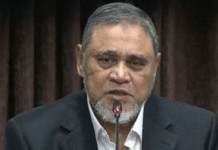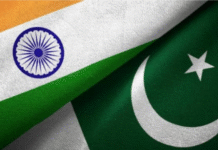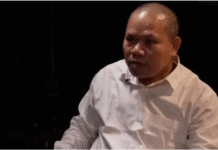Says the goal on environmental sustainability a big challenge for Bangladesh
 Describing environmental sustainability (MDG-7) as a formidable challenge for Bangladesh, Prime Minister Sheikh Hasina yesterday urged world leaders to come up with the promised support to help attain the goal.
Describing environmental sustainability (MDG-7) as a formidable challenge for Bangladesh, Prime Minister Sheikh Hasina yesterday urged world leaders to come up with the promised support to help attain the goal.
She also asserted that the country would remain in the forefront of global efforts in laying down the political groundwork for intergovernmental negotiations in achieving the post-2015 development agenda.
Hasina made the remarks while addressing a session, “Special event to follow-up efforts made towards achieving the MDGs”, at the UN Headquarters in New York.
She co-chaired the session with Irish Deputy Prime Minister Eamon Gilmore.
“MDG-7 is a formidable challenge for Bangladesh. However, the country has already met or is on track to meet MDG-1, MDG-2, MDG- 3, MDG-4, MDG-5, and MDG-6,” she said.
Bangladesh is a low-lying coastal state, fraught with natural disasters, which made it difficult for the country to achieve the MDG-7, she added.
“Our government has been implementing a 134-point Action Plan in line with our mitigation and adaptation policy,” she said, adding that the global community should positively respond to their promises.
Recalling her association with the adoption of the historic UN Millennium Declaration in September 2000, she said, “As the prime minister of Bangladesh, I was here at that time. It gave a ‘Development Vision’ and set goals on reducing poverty, hunger and inequality, among others, by 2015.”
“In 2010, I was here again as the prime minister and termed the Millennium Declaration as the Magna Carta for a world free from hunger and underdevelopment. I am now here at this Special Event to share our experiences on MDGs, and thoughts on post-2015 agenda,” she said.
Hasina said that after returning from the Millennium Summit in 2000, she decided to include the MDGs in the mainstream of Bangladesh’s Development Agenda and Poverty Reduction Strategy.
As per the decision, she said, the government integrated the MDGs in its annual, mid-term and long-term development plan. “Our actions have proved to be success stories that are being universally acclaimed.”
“Our efforts have led to making us honoured with the MDG Award 2010, South-South Award and FAO Diploma Award for reducing hunger by 2012,” she told her audience.
As far as MDG-3 is concerned, the premier said, Bangladesh had achieved gender equality in primary and secondary education in 2009.
On MDG-4, Bangladesh has achieved under-5 mortality rate of 36 per 1,000 live births in 2012, against targeted 48 by 2015.
“We did well in MDG-5 by reducing maternal mortality from 322 in 2001 to 194 in 2010,” she said.
On MDG-6, Bangladesh had progressed well with HIV/AIDS cases down to less than 0.1%, prevention of tuberculosis, reduction of malarial deaths, immunisation of children, safe drinking water to 88.2 % of the people, and ensured 91% sanitation.
With respect to MDG-8, she said, global partnership did not reach the level of the promised resources. “We would request our development partners to keep their commitments when they support our MDG efforts.”
Pointing out several national and sub-national consultations on the post-2015 agenda, Hasina said these consultations had led to 11 global goals with 58 targets and 241 measurable indicators for the period 2016-2030.
She hoped that the “People’s Empowerment and Development” model that she had placed at the UNGA in 2011 would be viewed when shaping the post-2015 development agenda.
“Bangladesh will make all-out efforts in forging consensus for our shared future, and also keep our commitments to providing tangible benefits through empowering our people,” she assured the conference.
Source: The Daily Star









